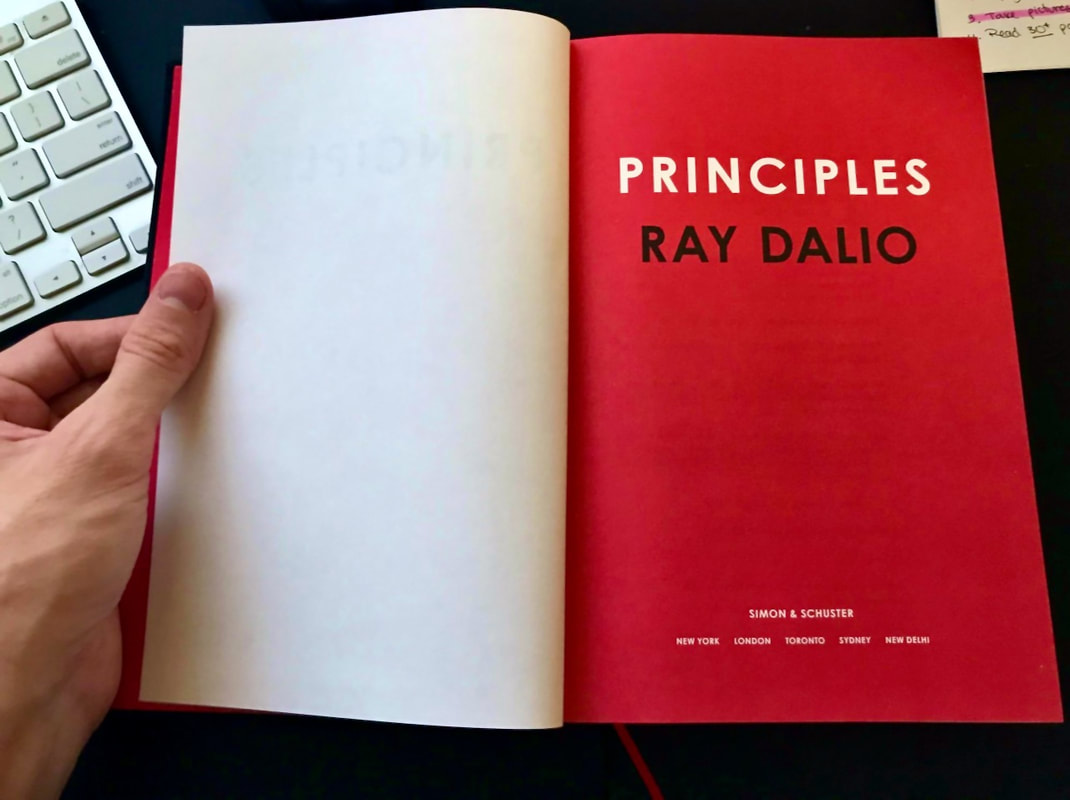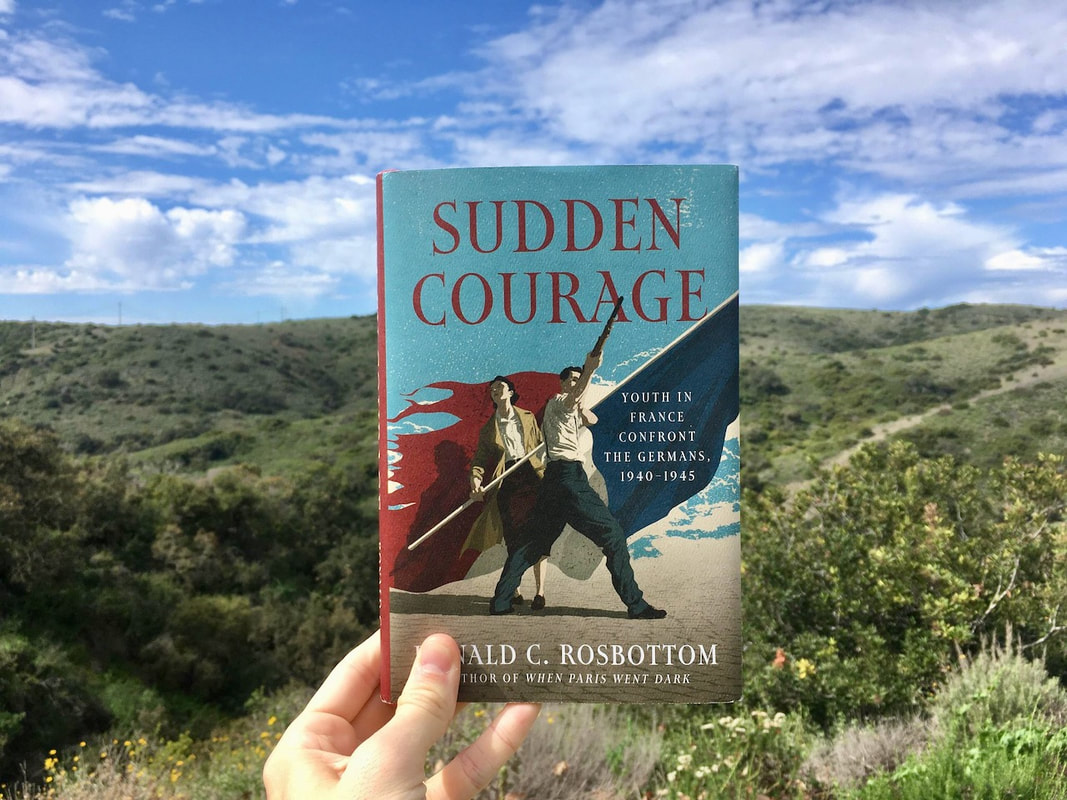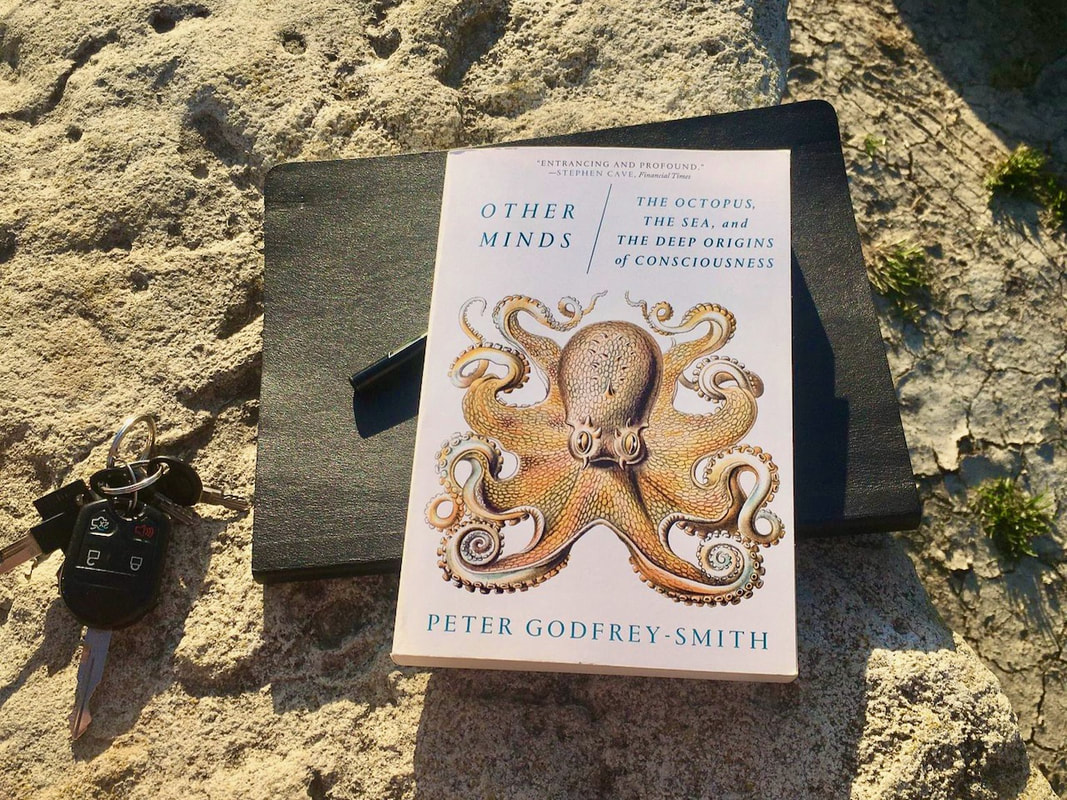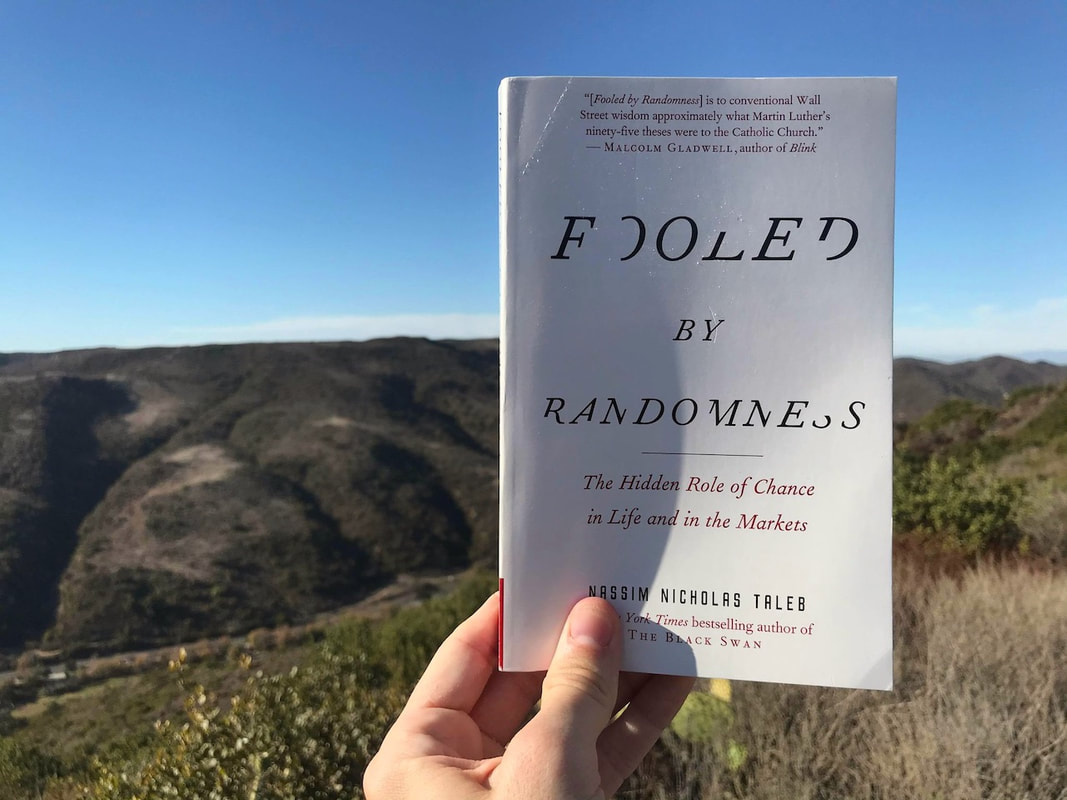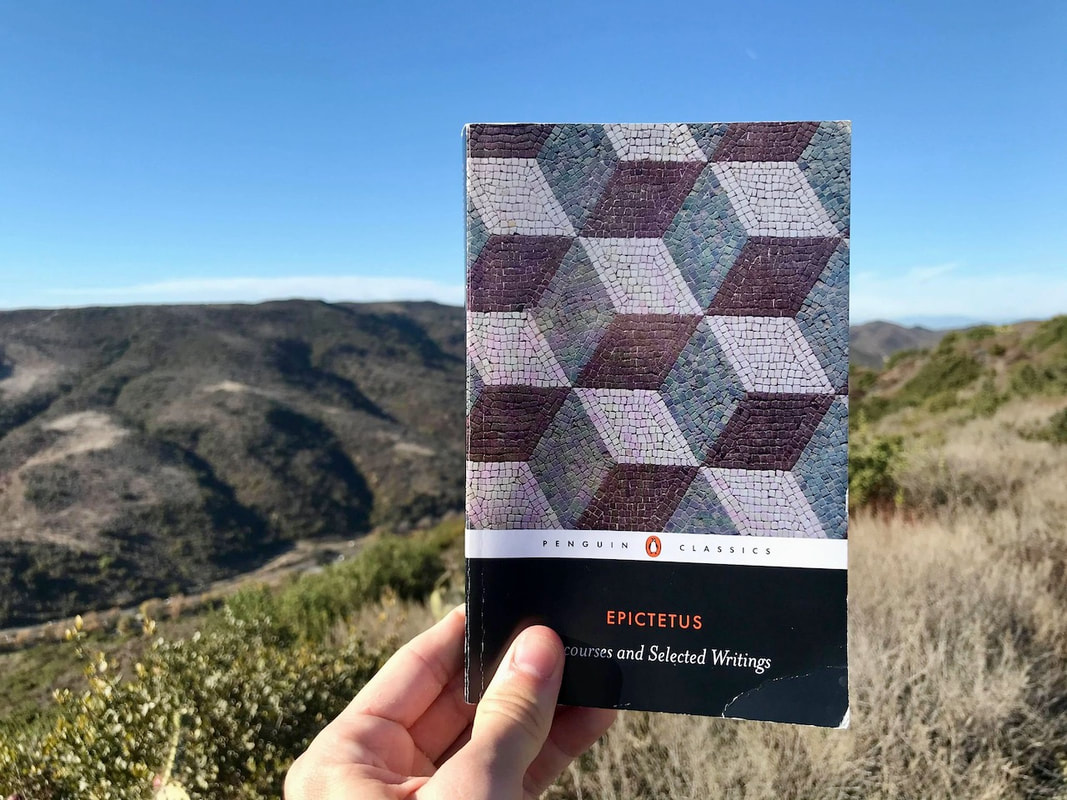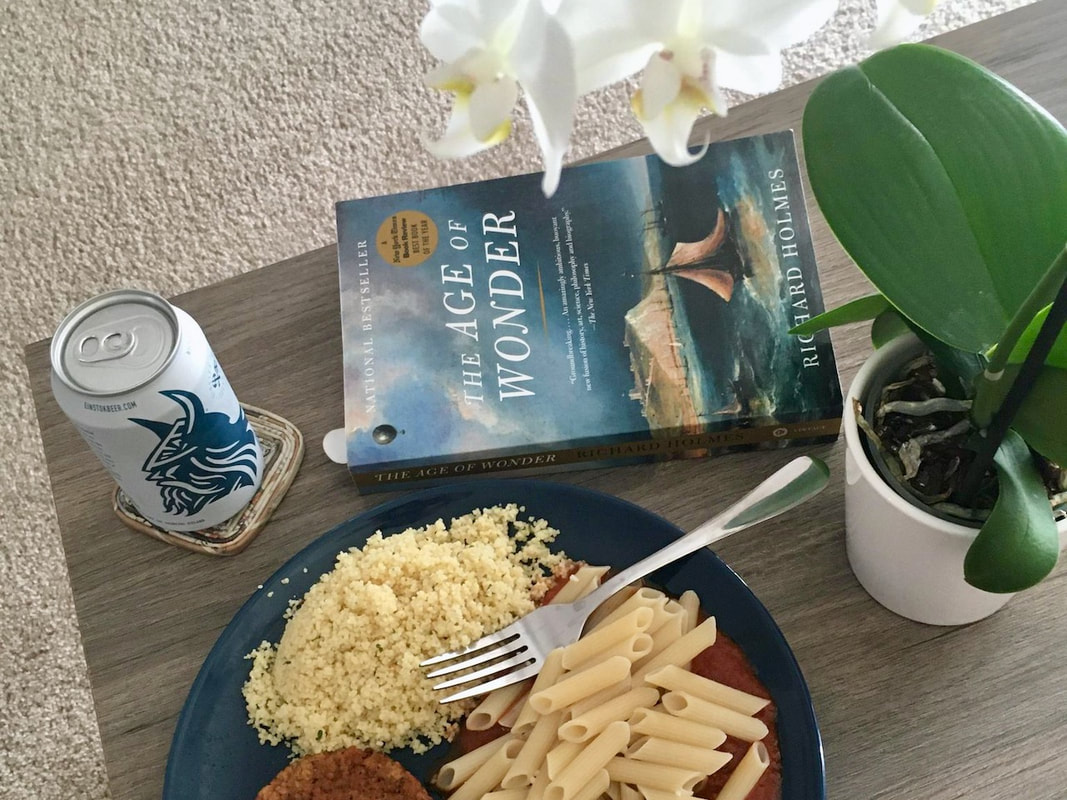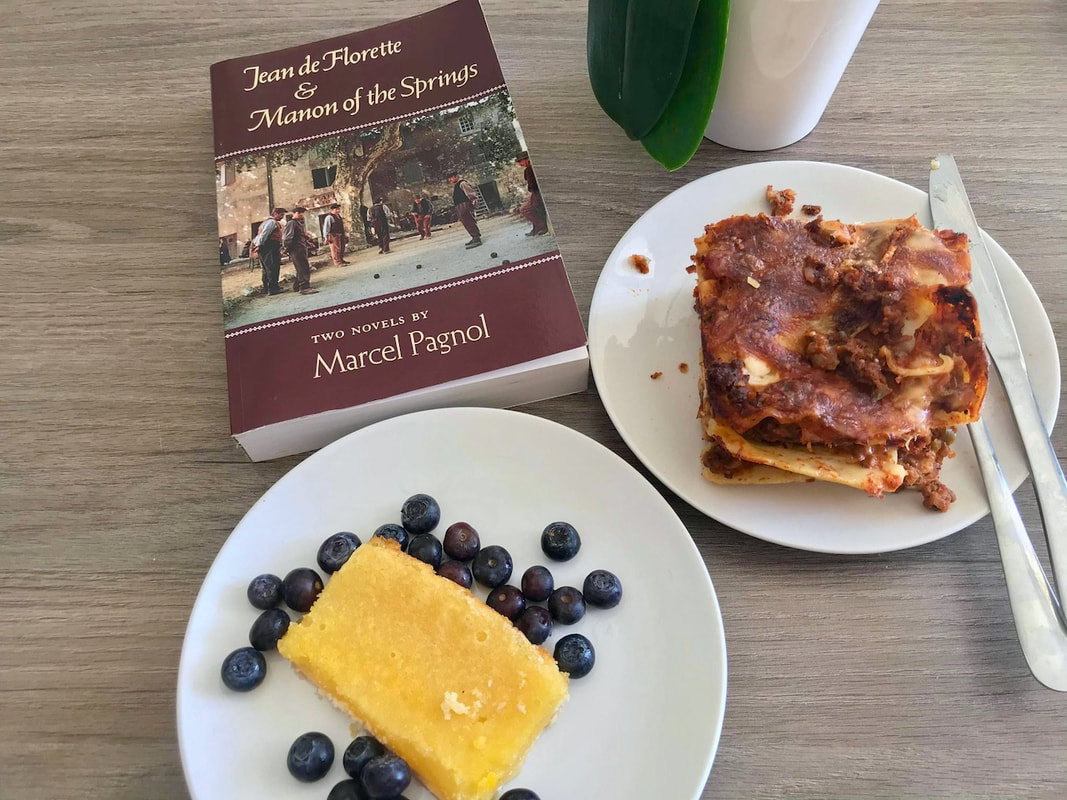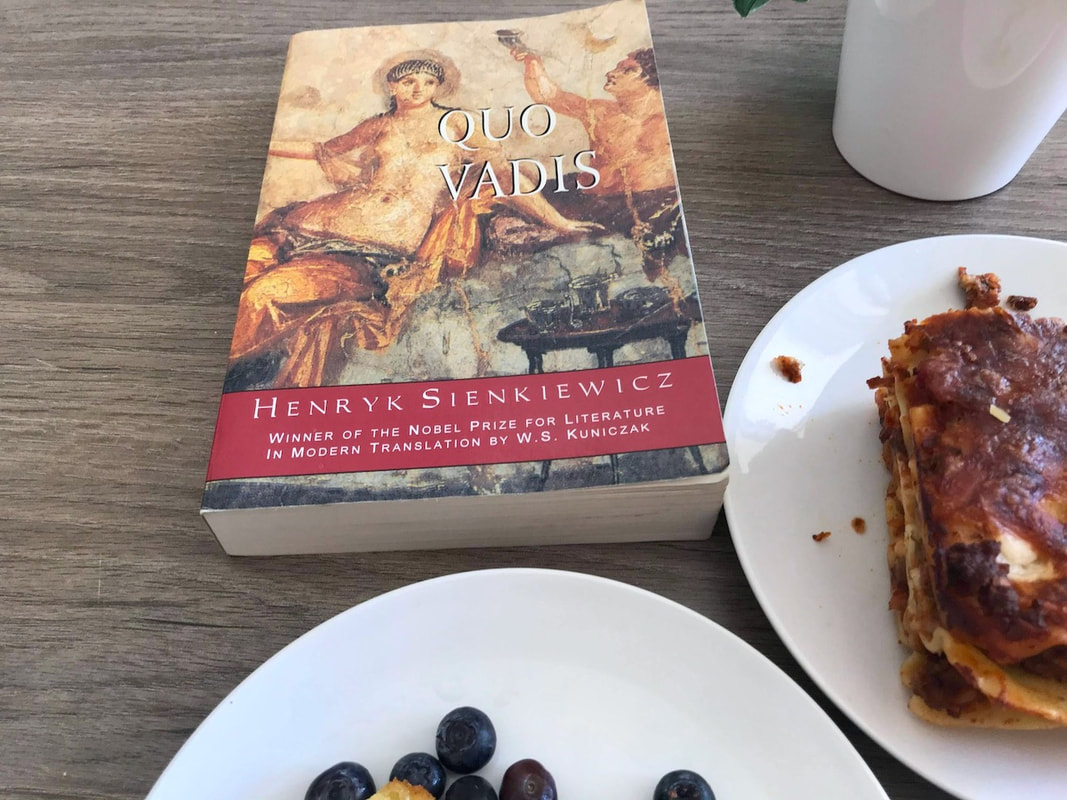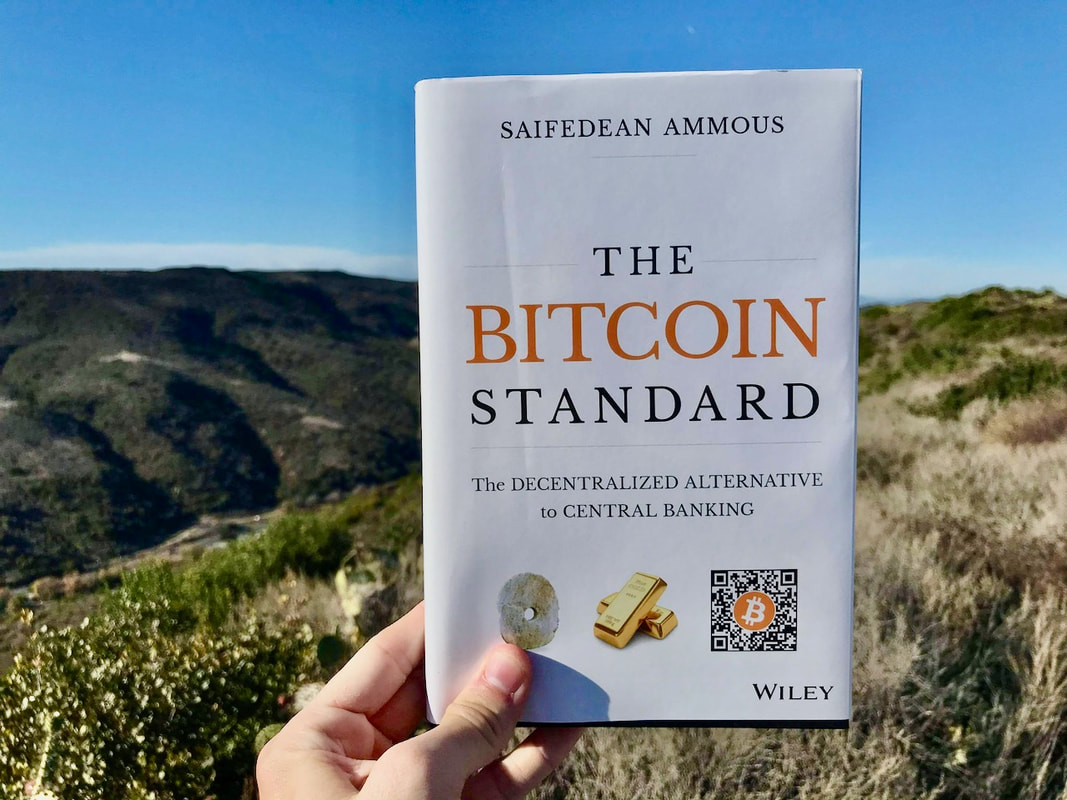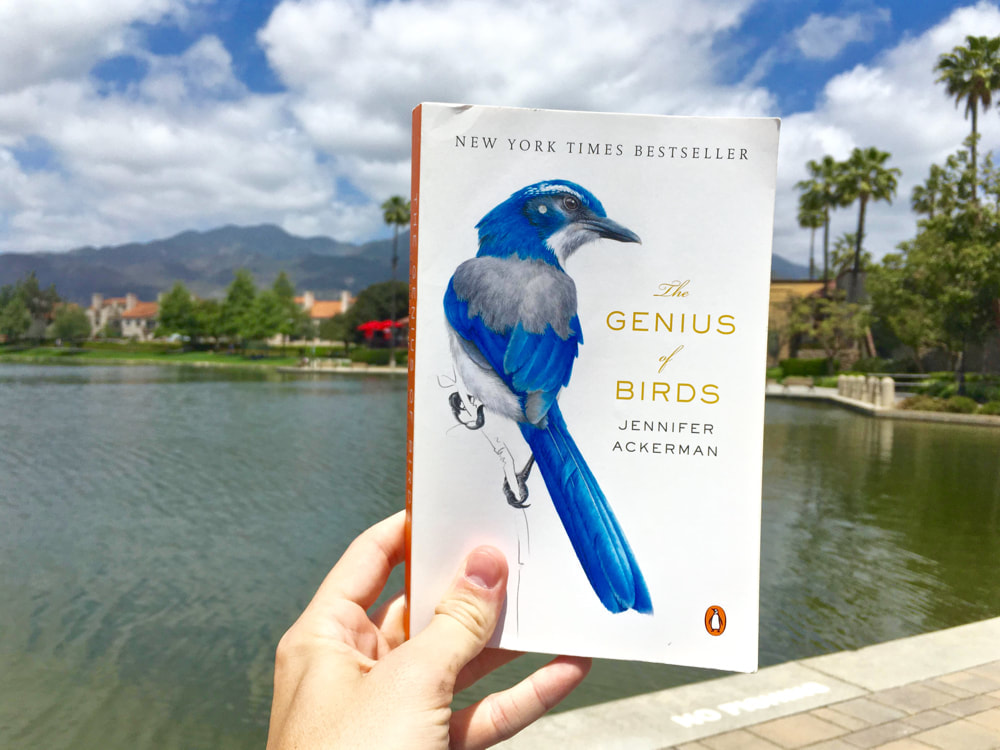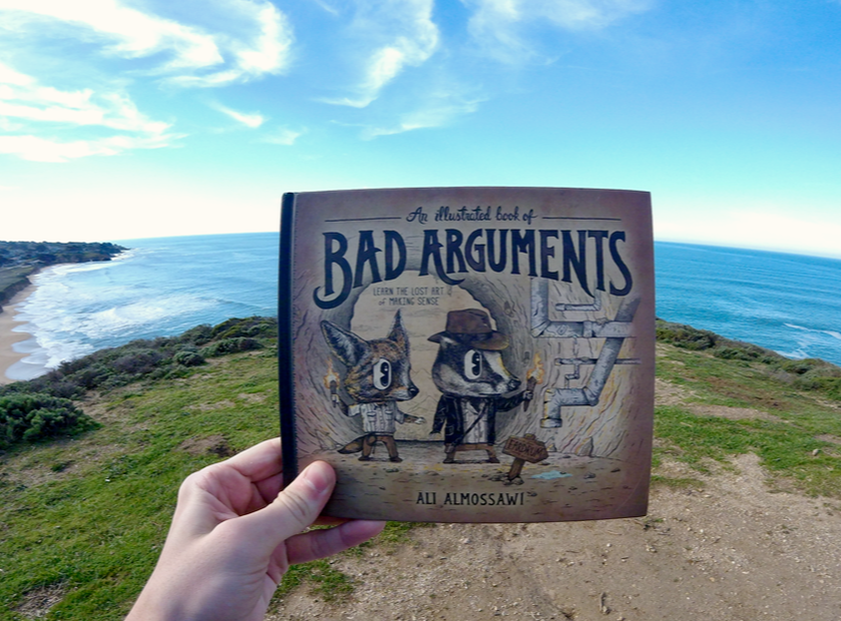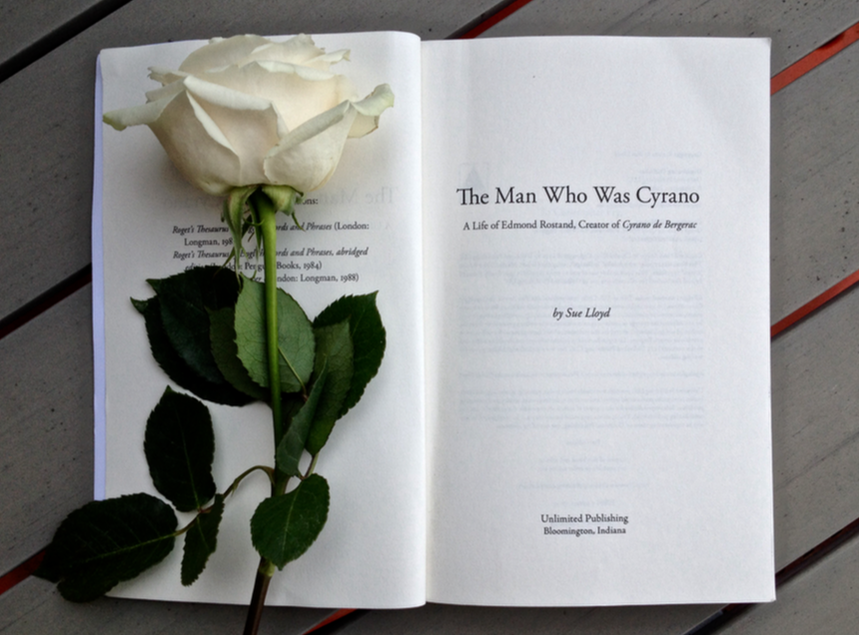Dear Friends and Readers:
It has been a while. Two years to be exact. So much has happened in the world and my life since I last posted: the COVID-19 pandemic, the murder of George Floyd, BLM protests, 'autonomous' zones, mass looting and riots, mask mandates, economic collapse, crypto booms and busts, a national election fraught with vitriol, conspiracies, and legal battles to challenge the outcome, the January 6th attack on our capital, and now a war in Ukraine. It all feels surreal. A strange mixture of anger and apathy linger in me, and I think others too.
Despite all this, I loved 2020. 2021 too. And I am loving 2022 so far. This time has given me perspective on a lot: the supreme importance of personal fitness, diet, friendships, family time, and achieving a better work-life balance. In 2020 and 2021, I picked up running almost daily. I returned to acrylic painting from my childhood. I bought a Dutch oven, cast iron skillet, and sous vide cooker. I made dozens of Italian, Indian, Thai, and Mexican dishes to my liking. I grew an herb garden—no not those kinds of herbs. I travelled to say goodbye to a dear friend and was able to make many new ones. I learned firearm safety and improved my abilities at the range. I began therapy for the first time with a professional. I traded 15 months of weekends for an Executive MBA degree. I switched jobs and received a promotion within the first year. I celebrated with my sister and new brother-in-law their marriage. And I never stopped reading.
Both of these lists of events—the personal/local and national/global— remind me of the inescapable power of ideas. With them, we shape ourselves and our world, for better or worse. Which is why I've decided to dust off this blog and return to sharing my book recommendations. If I can help inspire and inform even just 10% of what these authors, creatives, and stories have done for me, I'll be thrilled. Some will be new journeys and others return voyages, a combination that I prefer. Ten years ago, I moved to California and started this blog. I was fresh out of film school and had no idea what the future held, but I looked forward to whatever was around the corner. I still feel that way, here and now in February 2022. So, I'll keep reading and writing. I hope you do too.
Jon
P.S. Here are my yearly roundups from 2019, 2018, 2017, 2016, and 2015.
P.P.S. You can subscribe to the Reading List for more. Each month, I'll email you 3-6 books that I absolutely couldn't put down—usually a mix of fiction and nonfiction. I try to steer clear of bestseller (fake) lists, and instead explore authors who challenge my worldview, enchant me through language, and model how to act more effectively and nobly.
It has been a while. Two years to be exact. So much has happened in the world and my life since I last posted: the COVID-19 pandemic, the murder of George Floyd, BLM protests, 'autonomous' zones, mass looting and riots, mask mandates, economic collapse, crypto booms and busts, a national election fraught with vitriol, conspiracies, and legal battles to challenge the outcome, the January 6th attack on our capital, and now a war in Ukraine. It all feels surreal. A strange mixture of anger and apathy linger in me, and I think others too.
Despite all this, I loved 2020. 2021 too. And I am loving 2022 so far. This time has given me perspective on a lot: the supreme importance of personal fitness, diet, friendships, family time, and achieving a better work-life balance. In 2020 and 2021, I picked up running almost daily. I returned to acrylic painting from my childhood. I bought a Dutch oven, cast iron skillet, and sous vide cooker. I made dozens of Italian, Indian, Thai, and Mexican dishes to my liking. I grew an herb garden—no not those kinds of herbs. I travelled to say goodbye to a dear friend and was able to make many new ones. I learned firearm safety and improved my abilities at the range. I began therapy for the first time with a professional. I traded 15 months of weekends for an Executive MBA degree. I switched jobs and received a promotion within the first year. I celebrated with my sister and new brother-in-law their marriage. And I never stopped reading.
Both of these lists of events—the personal/local and national/global— remind me of the inescapable power of ideas. With them, we shape ourselves and our world, for better or worse. Which is why I've decided to dust off this blog and return to sharing my book recommendations. If I can help inspire and inform even just 10% of what these authors, creatives, and stories have done for me, I'll be thrilled. Some will be new journeys and others return voyages, a combination that I prefer. Ten years ago, I moved to California and started this blog. I was fresh out of film school and had no idea what the future held, but I looked forward to whatever was around the corner. I still feel that way, here and now in February 2022. So, I'll keep reading and writing. I hope you do too.
Jon
P.S. Here are my yearly roundups from 2019, 2018, 2017, 2016, and 2015.
P.P.S. You can subscribe to the Reading List for more. Each month, I'll email you 3-6 books that I absolutely couldn't put down—usually a mix of fiction and nonfiction. I try to steer clear of bestseller (fake) lists, and instead explore authors who challenge my worldview, enchant me through language, and model how to act more effectively and nobly.
10. PRINCIPLES
Ray Dalio
Ray Dalio
"You better make sense of what happened to other people in other times and other places because if you don't you won't know if these things can happen to you and, if they do, you won't know how to deal with them." — Ray Dalio, Principles
Ray Dalio is the founder of Bridgewater, one of the world's largest investment firm, and the most successful. He calls Bridgewater 'an idea meritocracy.' There, his team document and record everything. All business meetings are transparently made available to others. The team engages in radical candor with one another and their ideas.
"From early on," Dalio writes, "whenever I took a position in the markets, I wrote down the criteria I used to make the decision. Then, when I closed out a trade, I could reflect on how well these criteria had worked. It occurred to me that if I wrote these criteria into formulas, and then ran historical data through them, I could test how well my rules would have worked out in the past."
Dalio himself went bankrupt in the '80s, learning a humility lesson and enlightening his future operating process:
"More and more, we saw everything as 'another one of those'—another of a certain type of situation like hiring, firing, determining compensation, dealing with dishonesty— that had principles for handling it. By having them explicitly written out, I could foster the idea meritocracy by having us together reflect on and refine those principles—and then adhere to them."
Here are just some of Dalio and Bridgewater's principles:
A. Radical Transparency: all meetings on all levels were recorded, edited for brevity, and shared company wide.
B. Psychometric testing: Dalio had all of his managers take Meyers-briggs testing and 80% of them said it reflected them accurately 4/5 or 5/5. "What I have seen is that the happiest people discover their own nature and match their life to it."
C. Baseball Cards: are created for all people with states for certain behaviors and traits; approaches. "Bob Kegan called Bridgewater ' a form of proof that the quest for business excellence and the search for persona realization need to be mutually exclusive—and can in cast be essential to each other."
D. Evolve or die: The individuals incentives must be aligned with the group's goals. Reality is optimizing for the whole not just for you. Adaptation though rapid trial and error is invaluable. Realize that you are simultaneously everything and nothing — and decide what you want to be. What you will be depends on the point of view you will have. It's not bad weather. It's rain.
E. Pain and reflection is progress: Thinking about your problems makes them more solvable. Go to the pain. Don't avoid it. This will help you embrace learning your weaknesses, preferring honesty from others, and being yourself rather than having to pretend to be strong where weak. Embrace tough love.
F. Weigh second- and third-order consequences: Own your outcomes. Think of yourself as a machine operating within a machine and know that you have the ability to alter your machines to produce better outcomes. It's important to rely on others for objective evidence.
This book is a call to arms to "look to the patterns of those things that affect you in order to understand the cause-effect relationships that drive them and to learn principles for dealing with them effectively."
"From early on," Dalio writes, "whenever I took a position in the markets, I wrote down the criteria I used to make the decision. Then, when I closed out a trade, I could reflect on how well these criteria had worked. It occurred to me that if I wrote these criteria into formulas, and then ran historical data through them, I could test how well my rules would have worked out in the past."
Dalio himself went bankrupt in the '80s, learning a humility lesson and enlightening his future operating process:
- He would seek out the smartest people who disagree with you to understand their reasoning.
- He would work to know when not to have an opinion
- He would develop, test, and systematize timelines and universal principles
- He would balance risks in a ways that keep the big upside while reducing downside.
"More and more, we saw everything as 'another one of those'—another of a certain type of situation like hiring, firing, determining compensation, dealing with dishonesty— that had principles for handling it. By having them explicitly written out, I could foster the idea meritocracy by having us together reflect on and refine those principles—and then adhere to them."
Here are just some of Dalio and Bridgewater's principles:
A. Radical Transparency: all meetings on all levels were recorded, edited for brevity, and shared company wide.
B. Psychometric testing: Dalio had all of his managers take Meyers-briggs testing and 80% of them said it reflected them accurately 4/5 or 5/5. "What I have seen is that the happiest people discover their own nature and match their life to it."
C. Baseball Cards: are created for all people with states for certain behaviors and traits; approaches. "Bob Kegan called Bridgewater ' a form of proof that the quest for business excellence and the search for persona realization need to be mutually exclusive—and can in cast be essential to each other."
D. Evolve or die: The individuals incentives must be aligned with the group's goals. Reality is optimizing for the whole not just for you. Adaptation though rapid trial and error is invaluable. Realize that you are simultaneously everything and nothing — and decide what you want to be. What you will be depends on the point of view you will have. It's not bad weather. It's rain.
E. Pain and reflection is progress: Thinking about your problems makes them more solvable. Go to the pain. Don't avoid it. This will help you embrace learning your weaknesses, preferring honesty from others, and being yourself rather than having to pretend to be strong where weak. Embrace tough love.
F. Weigh second- and third-order consequences: Own your outcomes. Think of yourself as a machine operating within a machine and know that you have the ability to alter your machines to produce better outcomes. It's important to rely on others for objective evidence.
This book is a call to arms to "look to the patterns of those things that affect you in order to understand the cause-effect relationships that drive them and to learn principles for dealing with them effectively."
9. SUDDEN COURAGE: YOUTH IN FRANCE CONFRONT THE GERMANS, 1940-1945
Ronald C. Rosbottom
Ronald C. Rosbottom
"I want to always climb higher." — Nietzsche, quoted on the notebook cover of Felicien Joly, a resistance member
On June 14th, 1940, Nazi tanks entered a nearly deserted Paris. Many French citizens adapted to the new reality, even allying with their conquerors. But some resisted. 97% of the French resistance were men; 3% women. The majority were under 30 years old. 14% were under 18. There were different levels of resistance—violence, sabotage, financial support, and soft measures like bicycling grenades beneath greens to fighters. Emerging from the resistance effort were young heroes who have since become immortalized:
I was blown away by the many true accounts of individual courage and resolve in this book. It was also fascinating to explore the cultural forces influencing the resistance, which include the jazz clubs and the cinema. "The movies offered a wider world and a variety of emotions and strategies for naive youngsters [to combat the Nazi occupiers]. An inexpensive form of entertainment—unlike opera, symphony, or theater—films, for a while brought social classes together in one place where status and background were temporarily hidden. And, if only for a couple of hours, they assembled several generations, from the young to the old, in the same darkened room."
This book is a celebration of an often overlooked part of society: young adults and adolescents, who have shown throughout history to step up when older generations fall short of their professed ideals. I think these role models are just as relevant in 2022 as they were in 1940.
- Jacques Lusseyran: a physically blind leader who "had the sense of human beings" and recruiter dozens of resistance fighters from Zazous (French jazz clubs) and build one of the largest underground networks.
- Guy Moquet: a young man executed randomly at the hands of the Germans, and whose letters of courage emboldened his generation.
- Maroussia Naitchenko: a political activist adept at sensing and escaping Gestapo traps
- And many others.
I was blown away by the many true accounts of individual courage and resolve in this book. It was also fascinating to explore the cultural forces influencing the resistance, which include the jazz clubs and the cinema. "The movies offered a wider world and a variety of emotions and strategies for naive youngsters [to combat the Nazi occupiers]. An inexpensive form of entertainment—unlike opera, symphony, or theater—films, for a while brought social classes together in one place where status and background were temporarily hidden. And, if only for a couple of hours, they assembled several generations, from the young to the old, in the same darkened room."
This book is a celebration of an often overlooked part of society: young adults and adolescents, who have shown throughout history to step up when older generations fall short of their professed ideals. I think these role models are just as relevant in 2022 as they were in 1940.
8. OTHER MINDS: THE OCTOPUS, THE SEA, AND THE DEEP ORIGINS OF CONSCIOUSNESS
Peter Godfrey-Smith
Peter Godfrey-Smith
“Mischief and craft are plainly seen to be characteristics of this creature.” — Cladius Aelianus, 3rd C. AD about octopus
“The mind evolved in the sea. Water made it possible. All the early stages took place in water: the origin of life, the birth of animals, the evolution of nervous systems and brains, and the appearance of complex bodies that make brains worth having...All the basic activities of life occur in water-filled cells banded by membranes, tiny containers whose insides are remnants of the sea.” — PGS, Other Minds
“The mind evolved in the sea. Water made it possible. All the early stages took place in water: the origin of life, the birth of animals, the evolution of nervous systems and brains, and the appearance of complex bodies that make brains worth having...All the basic activities of life occur in water-filled cells banded by membranes, tiny containers whose insides are remnants of the sea.” — PGS, Other Minds
Hawaiian creation myths speak of the octopus as the lone survivor of a lost world and time. Roman naturalists were taken by the creatures too, characterizing them as full of ‘mischief and craft.’ 20th century scientists posit that humans and cephalopods share a 600-million-year-old ancestor. Modern field studies have observed dozens of social rituals with color changes and tentacle movements. This suggests a complex language rivaling those of baboons and dolphins. The author, Peter Godfrey-Smith, recounts one story of an octopus taking a scuba diver’s hand by one tentacle then walking across the sea floor with the diver in tow for a ten-minute journey to its home on the reef.
Octopus have memory, can use tools (like coconut shells as a mobile shelter), solve puzzles in captivity, recognize different humans even in uniform, escape cages with captor’s backs turned, and probably shift colors based on internal chemistry not just external variables. Animals like humans are much more capable and complex than we sometimes think. When we learn about them and their unique forms of being we learn about ourselves too...
Octopus have memory, can use tools (like coconut shells as a mobile shelter), solve puzzles in captivity, recognize different humans even in uniform, escape cages with captor’s backs turned, and probably shift colors based on internal chemistry not just external variables. Animals like humans are much more capable and complex than we sometimes think. When we learn about them and their unique forms of being we learn about ourselves too...
7. FOOLED BY RANDOMNESS: THE HIDDEN ROLE OF CHANCE IN LIFE AND IN THE MARKETS
Nassim Nicholas Taleb
Nassim Nicholas Taleb
"The specialist is the fool of all fools." — Nassim Nicholas Taleb, Fooled By Randomness
"I believe that the principal asset I need to protect and cultivate is my deep-seated intellectual insecurity. My motto is "my principal activity is to tease those who take themselves and the quality of their knowledge too seriously," writes Nassim Nicholas Taleb in the Introduction to Fooled By Randomness, his first work in the Incerto series. It includes such bestsellers as The Black Swan and Anti-Fragile, and Skin in the Game. As a financial investor for over two decades, Taleb's books combine philosophy, mathematics, and probability and applies them to practical problems.
Themes in FBR include his distrust for experts, a kind of rough, Roman virtue that necessitates calling out pseudo-experts and institutions, his fascination with stoic philosophers, especially Epictetus, and his focus on correcting psychological biases. One such bias is Survivorship Bias, which scientific research and development is filled with. Research that yields no results does not go to print. However, in truth there may be great information in the fact that nothing took place.
A close friend has been recommending Nassim Nicholas Taleb to me for years, and I was so glad to have finally encountered him. His iconoclastic, moral-toned, yet humorous exploration of self-knowledge and it's slippery nature was so refreshing.
Themes in FBR include his distrust for experts, a kind of rough, Roman virtue that necessitates calling out pseudo-experts and institutions, his fascination with stoic philosophers, especially Epictetus, and his focus on correcting psychological biases. One such bias is Survivorship Bias, which scientific research and development is filled with. Research that yields no results does not go to print. However, in truth there may be great information in the fact that nothing took place.
A close friend has been recommending Nassim Nicholas Taleb to me for years, and I was so glad to have finally encountered him. His iconoclastic, moral-toned, yet humorous exploration of self-knowledge and it's slippery nature was so refreshing.
6. DISCOURSES, FRAGMENTS, & ENCHIRIDION
Epictetus
Epictetus
Paperback | 304 pages
"Do you realize that you are awake?" — Epictetus, Discourses
Epictetus (55-135 A.D.) was a Roman slave. His master, once a slave himself, broke Epictetus' leg in a fit of rage, twisting and twisting until it snapped. 'I told you that would happen,' the young slave is told to have replied, simply. He walked with a limp for the rest of his life, but eventually earned his freedom, dedicating his life to philosophy and teaching. In fact, he criticized Caesar Hadrian so much that he was accused of being a republican and exiled from the Roman empire. So he went to Nicopolis in Greece to found his own philosophy school and speak freely. Discourses are notes from one of his students, Arrian, who also wrote a biography of Alexander the Great. Late in life, upon retiring, Epictetus adopted a child, hired a surrogate mother, and paid servant. He owned no slaves.
Throughout Discourses, Fragments (literally the the fragments from his mostly-lost lectures) and Enchiridion (meaning 'small handbook'), Epictetus expounds upon the his views of real vs. fraudulent freedom. Crucial to this, is knowing one's own limits, and respecting what one does not know. Perhaps more than any stoic (Aurelius, Seneca, Cicero, Cato, and Zeno), Epictetus has a reverence for Socrates, the Greek philosopher and 'gadfly' who wandered Athens asking simple questions of his fellow citizens. He also criticized pseudo-intellectuals who were philosophers "not in their actions, but in their words."
There is so much to reflect on throughout his work, as other stoics: the pursuit for domesticating one's emotions, especially in the face of bad luck or injustices, the effort to find happiness not in externals but in one's moral quests, and the need for continual physical and mental refinement through wisdom. Ultimately, I view the stoic school of philosophy as profound, informative, instructive, inspiring, and self-empowering.
"It's only my leg you will chain," Epictetus, the ex-slave writes, "Not even God can conquer my will."
And later, “What would have become of Hercules, do you think, if there had been no lion, Hydra, stag, or boar-and no savage criminals to rid the world of? What would he have done in the absence of such challenges? Obviously, he would have rolled over in bed and gone back to sleep. So by snoring his life away in luxury and comfort he never would have developed into the mighty Hercules. And even if he had, what good would it have done him? What would have been the use of those arms, that physique, and that noble soul, without crises or conditions to stir him into action? ... Now that you know all this, come and appreciate the resources you have, and when that is done, say, “Bring on whatever difficulties you like, Zeus, I have resources and a constitution that you gave me, by means of which I can do myself credit whatever happens.”
Throughout Discourses, Fragments (literally the the fragments from his mostly-lost lectures) and Enchiridion (meaning 'small handbook'), Epictetus expounds upon the his views of real vs. fraudulent freedom. Crucial to this, is knowing one's own limits, and respecting what one does not know. Perhaps more than any stoic (Aurelius, Seneca, Cicero, Cato, and Zeno), Epictetus has a reverence for Socrates, the Greek philosopher and 'gadfly' who wandered Athens asking simple questions of his fellow citizens. He also criticized pseudo-intellectuals who were philosophers "not in their actions, but in their words."
There is so much to reflect on throughout his work, as other stoics: the pursuit for domesticating one's emotions, especially in the face of bad luck or injustices, the effort to find happiness not in externals but in one's moral quests, and the need for continual physical and mental refinement through wisdom. Ultimately, I view the stoic school of philosophy as profound, informative, instructive, inspiring, and self-empowering.
"It's only my leg you will chain," Epictetus, the ex-slave writes, "Not even God can conquer my will."
And later, “What would have become of Hercules, do you think, if there had been no lion, Hydra, stag, or boar-and no savage criminals to rid the world of? What would he have done in the absence of such challenges? Obviously, he would have rolled over in bed and gone back to sleep. So by snoring his life away in luxury and comfort he never would have developed into the mighty Hercules. And even if he had, what good would it have done him? What would have been the use of those arms, that physique, and that noble soul, without crises or conditions to stir him into action? ... Now that you know all this, come and appreciate the resources you have, and when that is done, say, “Bring on whatever difficulties you like, Zeus, I have resources and a constitution that you gave me, by means of which I can do myself credit whatever happens.”
5. THE AGE OF WONDER
Richard Holmes
Richard Holmes
"To the natural philosopher there is no natural subject unimportant or trifling...a soap bubble...an apple...a pebble...He walks in the midst of wonders." — John Hershel, astronomer
This is the story of romantic science, "the notion of an infinite, mysterious Nature, waiting to be discovered or seduced into revealing her secrets, was widely held," and the intelligent, courageous individuals nobly pursuing those secrets in the 1700's and 1800's across the globe.
There were competing theories of science too though: a. that science was the mere handmaiden of religion by showing natural laws as evidence of the divine b. that science was just Newtonian physics and mathematics c. a Platonic "pure' disinterested science independent of religion and politics. d. and a kind of popular science that was understandable and useful to all. However, The Age of Wonder, shows that this romantic view was also the most powerful, beginning with a young Joseph Banks' ocean voyage to Tahiti in 1769.
Joseph Banks
It was a time of military, economic, cultural, and scientific advancements. Knowledge and the quest for more was the resource sought by many eccentric explores from England and France, including Joseph Banks. He brought back 1000+ plant species, 500+ animal skins and bones. Banks created a botanical garden called Kew. He was knighted for it.
William and Caroline Herschel
"William Hershel and his sister, Caroline Herschel, in the 1780s spend night after night, month after month, summer and especially winder, alone but together in the open air, under a changing canopy of stars. Their minutely recorded telescope observations published in over a hundred papers by the Royal society, would change not only the public conception of the solar system, but of the whole Milky Way galaxy and the structure and meaning of the universe itself."
Hershel discovered a 7th planet: Uranus, which marked the rebirth of science in 1781. He used a 7' telescope which had magnitudes of 270c, 460x, and 932x depending on the lens, and more importantly, amount of light. This was an intersection of Newtonian physics and astronomy. Previously from Galileo onward, the focus on better lenses had kept magnification much more limited. William and Caroline Herschel had revolutionized man and woman's vision to see further than ever.
William Herschel died looking out his bedroom at his forty foot telescope. His tombstone read: "He broke through the barriers of heaven." And the Astronomical Society's motto in 1828, "Let Whatever Shines Be Noted" was given to Caroline on a gold medal as a gesture for her crucial partnership with her brother.
Dr. Alexandre Charles
Dr. Charles' ascent in a balloon in 1784 to 10,000 ft. in ten minutes as the first solo flight in history. Many balloonist followed, seeking to understand the secrets of flight, the upper atmosphere, and weather causes. There was also recreation. The British Balloon Club was headed by the Prince of Wales.
...And Others
This "unbounded scope for science" was also a rising self-confidence in humanity's own abilities. Their achievements helped shape our world today.
There were competing theories of science too though: a. that science was the mere handmaiden of religion by showing natural laws as evidence of the divine b. that science was just Newtonian physics and mathematics c. a Platonic "pure' disinterested science independent of religion and politics. d. and a kind of popular science that was understandable and useful to all. However, The Age of Wonder, shows that this romantic view was also the most powerful, beginning with a young Joseph Banks' ocean voyage to Tahiti in 1769.
Joseph Banks
It was a time of military, economic, cultural, and scientific advancements. Knowledge and the quest for more was the resource sought by many eccentric explores from England and France, including Joseph Banks. He brought back 1000+ plant species, 500+ animal skins and bones. Banks created a botanical garden called Kew. He was knighted for it.
William and Caroline Herschel
"William Hershel and his sister, Caroline Herschel, in the 1780s spend night after night, month after month, summer and especially winder, alone but together in the open air, under a changing canopy of stars. Their minutely recorded telescope observations published in over a hundred papers by the Royal society, would change not only the public conception of the solar system, but of the whole Milky Way galaxy and the structure and meaning of the universe itself."
Hershel discovered a 7th planet: Uranus, which marked the rebirth of science in 1781. He used a 7' telescope which had magnitudes of 270c, 460x, and 932x depending on the lens, and more importantly, amount of light. This was an intersection of Newtonian physics and astronomy. Previously from Galileo onward, the focus on better lenses had kept magnification much more limited. William and Caroline Herschel had revolutionized man and woman's vision to see further than ever.
William Herschel died looking out his bedroom at his forty foot telescope. His tombstone read: "He broke through the barriers of heaven." And the Astronomical Society's motto in 1828, "Let Whatever Shines Be Noted" was given to Caroline on a gold medal as a gesture for her crucial partnership with her brother.
Dr. Alexandre Charles
Dr. Charles' ascent in a balloon in 1784 to 10,000 ft. in ten minutes as the first solo flight in history. Many balloonist followed, seeking to understand the secrets of flight, the upper atmosphere, and weather causes. There was also recreation. The British Balloon Club was headed by the Prince of Wales.
...And Others
- Mungo Park in Africa. He died in unknown circumstances. Probably killed by natives for not paying a river tax by a tribe.
- Joseph Ritchie, a young explorer, was gifted by Keats a copy of his newly published poem Endymion, with instruction to place it in his travel pack, read it on his journey and then throw it into the heart of the Sahara desert as a gesture of high romance.
- Humphrey Davy, a chemist and experimenter with gases in Cornwall. He proposed blocking pain with anesthetics during childbirth, incurring backlash from religious individuals.
- John Stewart Mill, a philosopher who invented Utilitarianism, writes in his autobiography how, after experiencing a nervous breakdown and therapeutic immersion in the poetry of Wordsworth and Coleridge, it was actually Herschel's book on the natural sciences that showed him how far he had recovered his intellectual grasp.
This "unbounded scope for science" was also a rising self-confidence in humanity's own abilities. Their achievements helped shape our world today.
4. TRAVELS
Michael Crichton
Michael Crichton
"Unaccustomed to direct experience, we come to fear it. We don't want to read a book or see a museum show until we've read the reviews so that we know what to think. We lose the confidence to perceive for ourselves. We want to know the meaning of an experience before we have it. We become frightened of direct experience, and we will go to elaborate lengths to avoid it." — Michael Crichton, Travels
Michael Crichton (1942-2008) remains the only writer to have a number one book, movie, and TV show in the same year. His novels include Jurassic Park, The Lost World, The Andromeda Strain, and State of Fear, among others. They have collectively sold over 200 million copies worldwide, been translated into thirty-eight languages, and provided the basis for fifteen films. He was also the director of Westworld, The Great Train Robbery, and Looker.
This is a travel memoir of adventures from across the globe: mudslides in Afghanistan, dangerous Jamaican taxi rides, the dating scene in 1980's LA, scuba dives with not enough oxygen, spoon-bending and auras in the desert, climbing Kilimanjaro, cadaver-cutting through med school, and so much more. For years, I have had an intellectual crush on Crichton for his novels as well as is lucid interviews with Charlie Rose. But Travels is my favorite. Ever the rational humanist, Crichton closes with a simply stated case for something going extinct in our modern era: direct experience.
"Within the last century we have come to live increasingly in a compelling world defined by electronic media. These media have evolved at a pace that is utterly alien to our true nature. It is bewildering to live in a world of ten-second spots, each one urging us to buy something to do something, or to think something. Human beings in the apst were not so assaulted. And I think this constant assault has made us pliable in a certain unhealthy way. Cut off from direct experience, cut off from our own feelings and sometimes our own sensations, we are only too ready to adopt a viewpoint or perspective that is handed to us, and is not our own."
This is a travel memoir of adventures from across the globe: mudslides in Afghanistan, dangerous Jamaican taxi rides, the dating scene in 1980's LA, scuba dives with not enough oxygen, spoon-bending and auras in the desert, climbing Kilimanjaro, cadaver-cutting through med school, and so much more. For years, I have had an intellectual crush on Crichton for his novels as well as is lucid interviews with Charlie Rose. But Travels is my favorite. Ever the rational humanist, Crichton closes with a simply stated case for something going extinct in our modern era: direct experience.
"Within the last century we have come to live increasingly in a compelling world defined by electronic media. These media have evolved at a pace that is utterly alien to our true nature. It is bewildering to live in a world of ten-second spots, each one urging us to buy something to do something, or to think something. Human beings in the apst were not so assaulted. And I think this constant assault has made us pliable in a certain unhealthy way. Cut off from direct experience, cut off from our own feelings and sometimes our own sensations, we are only too ready to adopt a viewpoint or perspective that is handed to us, and is not our own."
3. JEAN DE FLORETTE & MANON OF THE SPRING
Marcel Pagnol
Marcel Pagnol
Paperback | 488 pages
"Well, look: after having worked hard—I mean intellectual work—after meditating a long time and philosophizing, I came to the irrefutable conclusion that the only possible happiness was to be a man of Nature. I need air, I need space to crystallize my thoughts. I am more interested in what is true, pure, free, in a word, authentic, and I came here to cultivate the authentic."
— Jean de Florette to Ugolin
"Let's do what the spiders do; they don't tire themselves, they don't make a noise. They wait."
— Papet to Ugolin
— Jean de Florette to Ugolin
"Let's do what the spiders do; they don't tire themselves, they don't make a noise. They wait."
— Papet to Ugolin
Marcel Pagnol's tale of vengeance exacted by a mysterious shepherdess is a treasure. It was inspired by a Provencal legend, it is structured into two short novels, the first of an ambitious father surrounded by envious neighbors and the second, the daughter's revenge. The French countryside setting—its springs and hills, and farmland—is embalming and a combination of majesty and dangers. Jean de Florette's innocent ambitions move story forward and the treacherous farmers and townsfolk are subtle and quietly calculating. The plot and repercussions lead to a multi-generational, tragic legend of the rise and fall of families.
I also cannot recommend enough the films, starring Yves Montand as the Papet, Gerard Depardieu as Jean, and Emmanuelle Beart as a grown Manon. This story has become one of my favorites, and I've introduced both the book and films to many friends since.
I also cannot recommend enough the films, starring Yves Montand as the Papet, Gerard Depardieu as Jean, and Emmanuelle Beart as a grown Manon. This story has become one of my favorites, and I've introduced both the book and films to many friends since.
2. QUO VADIS
Henrik Sienkiewicz
Henrik Sienkiewicz
"I trust in God, she said, "and I'll keep on believing that there's a power greater than Nero's and that mercy is stronger than his cruelty." — From Sienkiewicz's Quo Vadis
Ayn Rand is one of my favorite writers. Her fiction as well as her fiction-writing course, given in the late 1950's in her NYC apartment, are treasures for me as an aspiring writer and a literature nerd. Quo Vadis, Rand contends, has the greatest plot-theme she ever encountered. Rand defines plot as a "purposeful progression of logically connected events leading to the resolution of a climax." Crucial to plot is moral conflict felt by characters who then make choices based on their values which necessarily leads to logical consequences. If you are looking for a story with moral characters acting to achieve their values against internal and external obstacles, then please read Quo Vadis.
Written over a century ago, Quo Vadis has been translated into 40 languages and is perhaps the best-selling novels in history. Set in Rome during Nero's reign, the story concretizes the collapse of the Roman empire and the rise of Christianity in the form of a deadly love triangle. I was emotionally affected throughout my reading of it, and chose the translation by W.S. Kuniczak upon recommendations for his ability to capture the author's sharp dialogue: "I fear Christ, not the city guard." And the author's painstakingly researched descriptions of Roman life and customs: "This was the first time Ligia was seeing these gardens, one of the wonders of the Roman world, full of cypresses, wild pine, oaks, olive trees and myrtles, and with a whole population of white marble statues scattered in their shade. She caught sight of quiet pools still as silvered mirrors, breathed the scent of roses that grew in thick groves throughout the park and glinted in the sun under spraying fountains..."
The title is a latin for 'Where are you going?' which Peter the apostle asks God in the novel's finale. The disciple hears God's answer and returns to Rome, to speak the Word, build His church, and die. This was one of the greatest stories I have ever read. I cannot wait to delve into the Polish author's other works soon, including his famous Trilogy of his homeland.
Written over a century ago, Quo Vadis has been translated into 40 languages and is perhaps the best-selling novels in history. Set in Rome during Nero's reign, the story concretizes the collapse of the Roman empire and the rise of Christianity in the form of a deadly love triangle. I was emotionally affected throughout my reading of it, and chose the translation by W.S. Kuniczak upon recommendations for his ability to capture the author's sharp dialogue: "I fear Christ, not the city guard." And the author's painstakingly researched descriptions of Roman life and customs: "This was the first time Ligia was seeing these gardens, one of the wonders of the Roman world, full of cypresses, wild pine, oaks, olive trees and myrtles, and with a whole population of white marble statues scattered in their shade. She caught sight of quiet pools still as silvered mirrors, breathed the scent of roses that grew in thick groves throughout the park and glinted in the sun under spraying fountains..."
The title is a latin for 'Where are you going?' which Peter the apostle asks God in the novel's finale. The disciple hears God's answer and returns to Rome, to speak the Word, build His church, and die. This was one of the greatest stories I have ever read. I cannot wait to delve into the Polish author's other works soon, including his famous Trilogy of his homeland.
1. THE BITCOIN STANDARD
Saifedean Ammous
Saifedean Ammous
"Bitcoin can be understood as distributed software that allows for transfer of value using a currency protected from unexpected inflation without relying on trusted third parties."
— Saifedean Ammous, The Bitcoin Standard
Saifedean Ammous is a professor of economics at the Lebanese American University, and his book The Bitcoin Standard completely and forever shifted my understanding of money for the better. This is without a doubt one of the most impactful books I have ever read. Since reading it, I have invested over 35% of my wealth into various cryptocurrencies. In the short term, I intend to allocate more, and in the long-term I intend to shift all of that 35%+ into Bitcoin. This is not financial advise. But I feel that I have a moral obligation to put in writing my own personal investment amount, and not just give an opinion but doing something different.
Structured into ten chapters, Ammous actually lays out the history and use cases of money for the first 7 chapters. He draws on the Austrian economists for much of the commentary. In the final 3 chapters, Ammous lays out the case for Bitcoin, simply and clearly—including some unknowns and guesses about what the future holds. Will it go up? Down? Will it last either way? I uncovered a note from December 2020, in which I ask just that to myself: "Is $19,000 for 1 Bitcoin going to remain? Go down? Go up? As I write this 14 months later in February 2022, Bitcoin has risen to $69,000 at its peak and currently floats between $37-$45K per coin.
I highly recommend the author's podcast as well, which I have been listening to weekly for the past year. Also very excited to begin reading his second book, The Fiat Standard, which was recently published.
Structured into ten chapters, Ammous actually lays out the history and use cases of money for the first 7 chapters. He draws on the Austrian economists for much of the commentary. In the final 3 chapters, Ammous lays out the case for Bitcoin, simply and clearly—including some unknowns and guesses about what the future holds. Will it go up? Down? Will it last either way? I uncovered a note from December 2020, in which I ask just that to myself: "Is $19,000 for 1 Bitcoin going to remain? Go down? Go up? As I write this 14 months later in February 2022, Bitcoin has risen to $69,000 at its peak and currently floats between $37-$45K per coin.
I highly recommend the author's podcast as well, which I have been listening to weekly for the past year. Also very excited to begin reading his second book, The Fiat Standard, which was recently published.
BUT WAIT THERE'S MORE ...
Narrowing down 52+ books into a Top 10 above can feel like a Herculean task. I'm so grateful to have also uncovered so many other enriching, thrilling, substantive fiction and non-fiction throughout the pandemic. They've been my hiking companions, road trip passengers, boba tea partners, and a few of them old friends from years past. Whether you pick up one or ten of them, from above or below, now or in the future, I hope that they give you as much as they have given me.
Happy reading. Stay safe. See you out there.
Happy reading. Stay safe. See you out there.
- And Then He Shot His Cousin by Jeremiah Cobra. My friend wrote, edited, illustrated, published and marketed this novella during COVID. Even more excited for his next one.
- Rebecca by Daphne Du Maurier. A Gothic tale full of foggy pasts, haunted hallways, and a fiery climax. Also turned into an excellent Hitchcock film with Laurence Olivier and Joan Fontaine.
- Rising Sun and The Lost World by Michael Crichton. Ruthless corporate wars between Japan and America and the only sequel Crichton ever wrote. I love the character Ian Malcolm from Jurassic Park and The Lost World, a kind of chaos-theory-infused Sherlock Holmes.
- The Children of Men by P. D. James. A day-after-tomorrow dystopia in which humans are infertile and the world goes to hell.
- The Moon is Down by John Steinbeck. A short parable that warns of the dangers of totalitarianism in our own hearts—and in our neighbors'.
- The Soul of the World by Roger Scruton. A spiritual exploration of romantic love, music, and architecture by a truly old soul. RIP Sir Scruton.
- A Dream of Kings by Davis Grubb. A childhood love-story set in Virginia during the American Civil War.
- Outliers: The Story of Success by Malcolm Gladwell. A fascinating exploration of data points that just don't fit the averages, but tell huge stories, like The Beatles and NHL players born in January. The Ethnic Theory of Plane Crashes chapter is masterful storytelling about the role of cultures in communication with destructive consequences.
- Daniel Martin by John Fowles. One of my favorite author's draws a perplexing portrait of a self-deluded screenplay writer. His descriptions of the English countryside and Egypt are haunting.
- Originals: How Non-Confirmists Move the World by Adam Grant. An exploration of creativity in business and the leadership required to foster it.
- Technopoly: The Surrender of Culture to Technology by Neil Postman. A sobering, thoughtful critique of how technology is hurting our ability to understand our health, reducing our individual privacy via government surveillance, and ultimately lose our culture identity. I should note, that I take issue with an element of Marxist flirting throughout it engaged by the author.
YOU MAY ALSO LIKE

